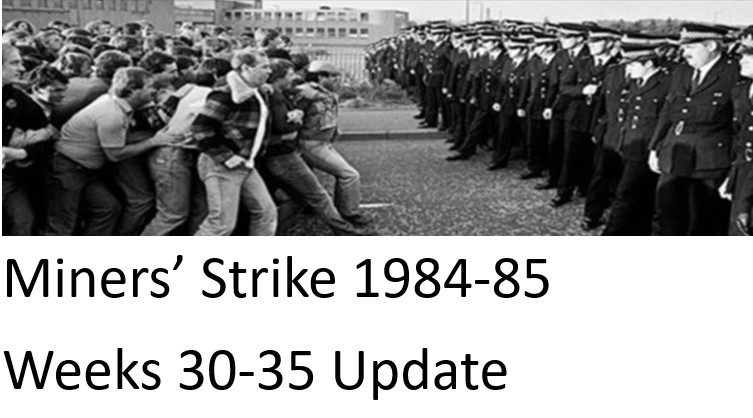By John Pickard, President of Central Essex NEU, personal capacity
The Tories have been forced into a humiliating climb down after their fiasco on A-level grades looked like being repeated with this week’s GCSE results. Thousands of angry A-level students demonstrated last weekend at having their grades stolen from them and it was looking like there would be tens of thousands more, younger students taking to the streets next weekend for exactly the same reason.
Instead, after Wales, Scotland and Northern Ireland had already taken the decision, the Tories have been dragged kicking and screaming into accepting grades based on teacher assessments, as they ought to have done from the beginning, instead of using a computer algorithm.
Private and independent schools the winners
The A-level results issued were so heavily biased against state schools, against BAME students and six-form colleges that even Tory MPs had been embarrassed by the outcomes. More than 25 Tory MPs, including two ministers, had joined calls from teachers and education experts for the crisis to be “resolved”.
While state schools had suffered the most, private schools had prospered from the Ofqual computer output. According to the Guardian today, “The number of students securing A or A* grades at independent schools rose 4.7% from 2019, compared with 2% at state schools and just 0.3% at further education colleges, according to data from Ofqual.”
To make matters worse, there had been contradictory messages coming out of government. Ofqual, the body that is supposed to monitor the quality and levels of examinations, had published information about how to make appeals against the A-level grades awarded, only to pull it from its website a day later. The Education Department and Ofqual clearly weren’t singing from the same hymn-sheet and many students and parents could be forgiven for thinking that there wasn’t a hymn-sheet at all. If there was, it has now been binned.
Ofqual’s statistical monstrosity
The computer-generated grades produced by Ofqual had been a kick in the teeth for hundreds of thousands of hard-working students and teachers and in many cases the results would have blighted the careers of young people irreparably. Many students had seen their grades inexplicably reduced by two levels.
It is worth considering for a moment how this statistical monstrosity arose in the first place. Data has been amassed centrally for decades on the progress of students from primary school right through to A-levels, from the ages of 8 to 18.
Ask any teacher, particularly in a secondary school, about data and you will be met with an angry expletive. The regime of Targets, Tables and Testing that dominates all teaching nowadays is based above all else on an obsession with data. Once or twice every single term, students have their National Curriculum ‘levels’ assessed, and the data is entered into a national system. ‘Data drops’ are the bane of the lives of teachers – a relentless, time-consuming and ultimately meaningless uploading of data for every student in every subject, in every school. School staff briefings are rarely filled with useful information about teaching and learning, but they are frequently dominated by heads or deputies exhorting their staff members to ‘get the data in’ on time.
Vast amounts of data collected
From these vast amounts of data collected over the years and from the earliest assessments that made on every pupil, the system generates an expected path of progression for each pupil, year on year. Schools are judged nowadays not on the quality of teaching and learning, but more than anything on the data that comes out the school. Headteachers, teachers and pupils are judged on their ‘progress’ against computerized expectations for their students.
No account is taken of the fact that different students make progress at different rates and at different phases of their lives. Some students, for a variety of reasons, even regress temporarily in their learning, only to put on a spurt later.
The system of data-input is so compromised that it is often unconnected to a student’s real progress. In schools in which I have taught, I have been instructed by heads as to what levels I have to ascribe to individual students. That is because if ‘too high’ a level is attributed, it triggers computer expectations of even greater progress in the future and that may not be achievable. “It’s best to err on the side of caution”, I’ve been told.
It is this vast bank of data, from millions of students and thousands of schools over many years, which was used to calculated A-level and GCSE grades in the absence of real exams. Ofqual, in its wisdom, had deemed that the overall national level of results should not rise above a certain arbitrary amount. It then also deemed that, statistically, if a school or college had worse results in the past, it was therefore likely that it would have worse results again and the grades for that school or college ‘adjusted’ accordingly.
For individual students, therefore, it was a post-code lottery. If you were in an inner-city state school or sixth-form college, then tough! If you were in a grammar school or an independent fee-paying school, then you’re obviously more intelligent!
Educational research and monitoring
The collection of examination attainment data nationally might be a useful tool for educational research and monitoring, but its use by Ofqual in this way is a gross misuse of statistical information. It is as if the BBC Weather forecast was used to try to predict the rainfall on each individual house in the UK. What may paint a broadly correct picture – although even that is open to argument – has no bearing on the individual cases upon which it impacts.
The overwhelming consensus among teachers and educationalists from the beginning was that the teacher assessments provided for GCSE and A-levels should be used as the final grades. Teacher assessment may not be perfect, but they are the fairest and most accurate measure there can be in the absence of proper exams.
They are never arrived at lightly but are based on the teachers’ professional judgements and student progress; they are always rigorously-standardized across a school and against previous results. Teacher assessments were quickly accepted for grading in Wales, Scotland and Northern Ireland, and eventually – but most reluctantly it seems – the Tories have now decided they should apply to England as well.
Tories’ ideological distrust of teachers
While there has always been a consensus within the education profession that teacher-assessments are a valid form of assessment, we have always been up against the Tories’ ideological distrust of teachers, something which is unfortunately reflected even within the right wing of the Labour Party. Angela Raynor, deputy leader and former Shadow Education spokesperson, dropped hints in favour of teacher-assessment, but Labour’s official response to the fiasco was simply to call on Johnson to “end this historic injustice.” According to the Guardian, Labour was calling for the government to hold an “urgent technical review” of the Ofqual algorithm, instead of simply coming out in favour of teacher-assessed GCSE and A-level grades.
Abolish the ritual dance around data
The Labour Party should questioning the whole logic of the “Tables, Targets and Testing” regime in modern education, a regime that reduces real teaching and learning to a ritual dance around data and number-crunching.
The 2019 Labour manifesto made the point that “Schools are being subjected to intensified testing, inspection, league tables and competition [which] aren’t
improving pupil achievement or narrowing the attainment gap but are contributing to a growing teacher recruitment and retention crisis”. This is putting it mildly, but it has got to be the starting point for Labour’s policy. We need a genuine student- and pupil-focused policy for teaching, learning and assessment, not a half-hearted endorsement of data-obsession and yet another ‘improved’ computer algorithm.
· *Support teacher assessed grades for all GCSE and A-level students
· *End the regime of targets, tables and testing in schools
· *Abolish Ofsted
· *Use data as an analytical tool and not a prescriptive straitjacket
August 17, 2020



